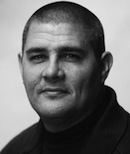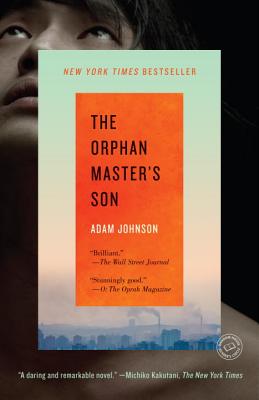 When I arrived at Pyongyang’s Sunan Airport a few years ago, my head was still spinning from a landing on a runway lined with cattle, electric fences and the fuselages of other jets whose landings hadn’t gone so well. Even though I’d spent three years writing and researching The Orphan Master’s Son, I was unprepared for what I was about to encounter in “the most glorious nation in the world.”
When I arrived at Pyongyang’s Sunan Airport a few years ago, my head was still spinning from a landing on a runway lined with cattle, electric fences and the fuselages of other jets whose landings hadn’t gone so well. Even though I’d spent three years writing and researching The Orphan Master’s Son, I was unprepared for what I was about to encounter in “the most glorious nation in the world.”
I’d started writing about North Korea because of a fascination with propaganda and the way it prescribes an official narrative to an entire people. In Pyongyang, that narrative begins with the founding of a glorious nation under the fatherly guidance of Kim Il Sung, is followed by years of industry and sacrifice among its citizenry, so that when Kim Jong Il comes to power, all is strength, happiness and prosperity. It didn’t matter that the story was a complete fiction–every citizen was forced to become a character whose motivations, desires and fears were dictated by this script. The labor camps were filled with those who hadn’t played their parts, who’d spoken of deprivation instead of plenitude and the purest democracy.
When I visited places like Pyongyang, Kaesong City, Panmunjom and Myohyangsan, I understood that a genuine interaction with a North Korean citizen was unlikely, since contact with foreigners was illegal. As I walked the streets, not one person would risk a glance, a smile, even a pause in their daily routine. In the Puhung Metro Station, I wondered what happened to personal desires when they came into conflict with a national story. Was it possible to retain a personal identity in such conditions, and under what circumstances would a person reveal his or her true nature? These mysteries–of subsumed selves, of hidden lives, of rewritten longings–are the fuel of novels, and I felt a powerful desire to help reveal what a dynastic dictatorship had forced these people to conceal.
Of course, I could only speculate on those lives, filling the voids with research and imagination. Back home, I continued to read books and seek out personal accounts. Testimonies of gulag survivors like Kang Chol Hwan proved invaluable. But I found that most scholarship on the DPRK was dedicated to military, political and economic theory. Fewer were the books that focused directly on the people who daily endured such circumstances. Rarer were the narratives that tallied the personal cost of hidden emotions, abandoned relationships, forgotten identities. These stories I felt a personal duty to tell. Traveling to North Korea filled me with a sense that every person there, from the lowliest laborer to military leaders, had to surrender a rich private life in order to enact one pre-written by the Party. To capture this on the page, I created characters across all levels of society, from the orphan soldier to the Party leaders. And since Kim Jong Il had written the script for all of North Korea, my novel didn’t make sense without writing his role as well.
Pak Jun Do is the haunted son of a lost mother—a singer “stolen” to Pyongyang—and an influential father who runs a work camp for orphans. Superiors in the state soon recognize the boy’s loyalty and keen instincts. Considering himself “a humble citizen of the greatest nation in the world,” Jun Do rises in the ranks. He becomes a professional kidnapper who must navigate the shifting rules, arbitrary violence, and baffling demands of his Korean overlords in order to stay alive. Driven to the absolute limit of what any human being could endure, he boldly takes on the treacherous role of rival to Kim Jong Il in an attempt to save the woman he loves, Sun Moon, a legendary actress “so pure, she didn’t know what starving people looked like.”
In this epic, critically acclaimed tour de force, Adam Johnson provides a riveting portrait of a world rife with hunger, corruption, and casual cruelty but also camaraderie, stolen moments of beauty, and love.
“Gripping . . . Deftly blending adventure, surreal comedy and Casablanca-style romance, the novel takes readers on a jolting ride through an Orwellian landscape of dubious identity and dangerous doublespeak.”—San Jose Mercury News
“This is a novel worth getting excited about. . . . Adam Johnson has taken the papier-mâché creation that is North Korea and turned it into a real and riveting place that readers will find unforgettable.”—The Washington Post
“[A] brilliant and timely novel.”—The Wall Street Journal
“Remarkable and heartbreaking . . . To [the] very short list of exceptional novels that also serve a humanitarian purpose The Orphan Master’s Son must now be added.”—The New Republic
“A triumph of imagination . . . [Grade:] A.”—Entertainment Weekly
“A spellbinding saga of subverted identity and an irrepressible love.”—Vogue
Look for special features inside. Join the Circle for author chats and more.















